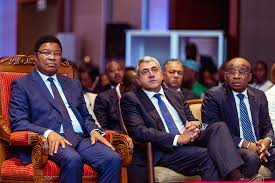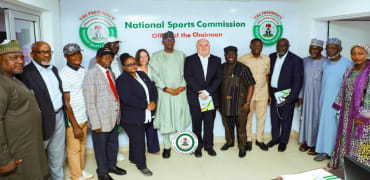UN Tourism Chief Calls on African Stakeholders to Harness Tourism for Peace and Unity
UN Tourism Chief Calls on African Stakeholders to Harness Tourism for Peace and Unity
By Achimi muktar
What if Africa’s greatest hope for peace isn’t in weapons or political summits — but in its beaches, festivals, and cultural heritage?
That’s the vision Zurab Pololikashvili, Secretary-General of UN Tourism, painted as he addressed African leaders and tourism stakeholders at the 68th Meeting of the UN Tourism Regional Commission for Africa (CAF), currently underway in Abuja, Nigeria.
Speaking against the backdrop of rising global tensions, Pololikashvili urged African nations to harness the untapped power of tourism to promote peace, unity, and economic transformation. “Today, we have more wars than ever after World War II,” he said. “But tourism plays a very positive role in peacebuilding.”
And Africa, he declared, is the future.
Pololikashvili’s message was clear: tourism is more than just sightseeing—it’s nation-building. From cultural exchanges that foster empathy, to job creation that stabilizes communities, tourism has a unique ability to bring people together.
“In Africa, we should use tourism for security, for culture, and for peace,” he said, pointing to the continent’s rich diversity as its greatest strength. He lauded Nigeria’s own model—home to over 240 ethnic groups—as an example of how cultural tourism can bridge divides.
The UN tourism chief called on African governments to invest more in youth and technology, noting that nearly half of Africa’s population is under 25. “If they don’t have computers, if they don’t have internet access, how will they develop and export their knowledge to the world?” he asked.
Echoing his sentiments, Nigeria’s Minister of Art, Culture, Tourism, and Creative Economy, Hannatu Musawa, spotlighted Nigeria’s strides in using cultural tourism to promote peaceful coexistence.
“For us in Nigeria, tourism is how we can build unity and understanding,” Musawa said. “With 240 tribes, we must learn to see the world through each other’s eyes.”
She emphasized the importance of collaboration across African borders, calling for integrated visa regimes and cross-border tourism corridors. “Tourism gives people a sense of ownership,” she said. “When communities own tourism, they protect it—and that promotes peace.”
This year’s conference, themed “Boosting Social Impact and Education on Tourism through AI, Innovation and Creative Industries in Africa,” also focused heavily on the role of digital transformation.
Panels throughout the week explored how artificial intelligence can revolutionize the way African destinations are marketed, experienced, and protected. Discussions ranged from public-private partnerships in tourism to how local innovators are using AI to create immersive storytelling experiences.
For Pololikashvili, this convergence of culture, technology, and youth energy is exactly what Africa needs. “There is talent here,” he said. “We just need to support it—with books, with tools, and with investment.”
Both Pololikashvili and Musawa stressed that Africans must reclaim the power to tell their own stories. “Our story has always been written for us,” said Musawa. “But we know who we are. We have values, traditions, and dreams worth sharing with the world.”
And with tourism as the canvas, Africa may just have the opportunity to paint a new picture—not only for economic growth but for lasting peace and unity.


















